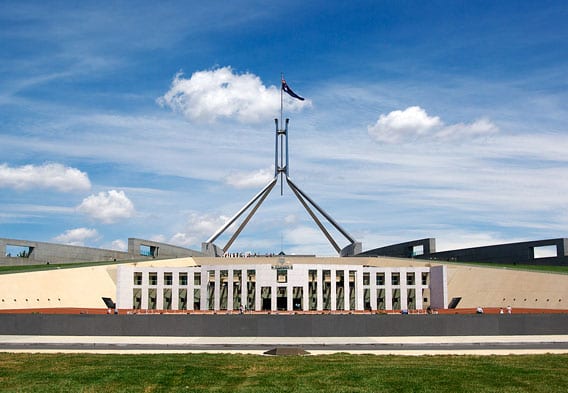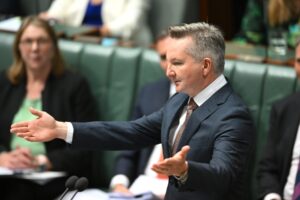The Institute of Public Affairs, the notorious right wing think tank that had the ear of the Abbott government and still looks influential in the Turnbull era, has renewed its call for the abolition of hundreds of government agencies, arguing that they hinder economic growth.
A new report focuses on health and transport bodies, as well as clean energy and climate change bodies, a major target for the IPA, which still refuses to accept the science of climate change, and whose views run thick through the conservative rump of the Coalition.
In its visors are the Australian Renewable Energy Agency, the Clean Energy Regulator, the Clean Energy Finance Corp, and the Climate Change Authority, which it said had only survived thanks to “Senate obstruction and other political considerations.”
“The federal government must redouble its efforts to abolish public sector regulators and other public sec- tor bodies, to deliver budget savings and abate the tendency to overregulation,” the IPA writes in its new report.
But does it actually understand what these agencies do?
This table, excerpted from a long list of targeted institutions, suggests not.
“Agency imposes excessive financial and red tape costs upon energy sector,” the IPA claims.
Really? Actually, ARENA is a grant funding agency that allocates money to help with projects. Engagement from the private sector is entirely voluntary, and the private sector usually does so because it would like government funds to help develop pre-commercial clean energy technologies.
What ARENA does represent – to the horror of the IPA and the interests it is presumed to represent – is progress towards new technologies and change.
Indeed, Australia’s two leading solar researchers – UNSW’s Martin Green and ANU’s Andrew Blakers, have renewed their call to stop the Coalition’s move to defund ARENA, saying it could “wipe out” solar research in Australia, which has been a world leader for decades and contributed billions of dollars to the economy.
“I don’t think this is a deliberate attempt to wipe out research into photovoltaics in this country – it’s more a case that the implications have slipped below the radar – but that’s what could happen,” said Martin Green.
Except, in the case of the IPA, it seems to be exactly that – a deliberate attempt to stop that research, which it would no doubt argue should depend on private funders only.
The current crop of ideologues would do well to catch up with a former IPA boss, WA energy minister and Treasurer Mike Nahan, who while remaining an economic rationalist, at least accepts the need to embrace new technologies such as solar and storage, the very technologies being accelerated by ARENA.
Nahan has even intervened to order the closure of 380MW of excess capacity, including coal. How very un-IPA of him.
Sadly, the federal Coalition is doing the IPA’s bidding in any case. It has announced plans to defund ARENA, remove $1.3 billion of legislated monies, and assign it a subsidiary role helping out the CEFC. It is retained in name only.
The IPA seems unsure what the Climate Change Authority does either, making the same accusations it did against ARENA, although extending its impact to the whole economy rather than just the energy sector.
But the CCA is only an advisory body, nominally independent until the Coalition stacked the board with its own nominees earlier this year. I suppose “accepting of climate change and developing policy proposals to address issue” sound less a reason for abolition than “imposing excessive regulatory costs.”
In any case, the Coalition has steadfastly refused to accept, or possibly even read, any of the CCA’s recommendations, although Labor has adopted its recommended emissions reduction target of 45 per cent by 2030.
Curiously, a CCA report due to be released at the end of April, likely recommending the evolution of Direct Action into a baseline and credit scheme – or emissions trading – was buried and will not be released until after the election.
Still, the IPA is determined to have its way and strip all such bodies. It expresses annoyance and disappointment that 400 bodies created during the Rudd-Gillard era remain in place, with nearly half of them – shock, horror – having policy or enforcement involvement within the federal regulatory system.








